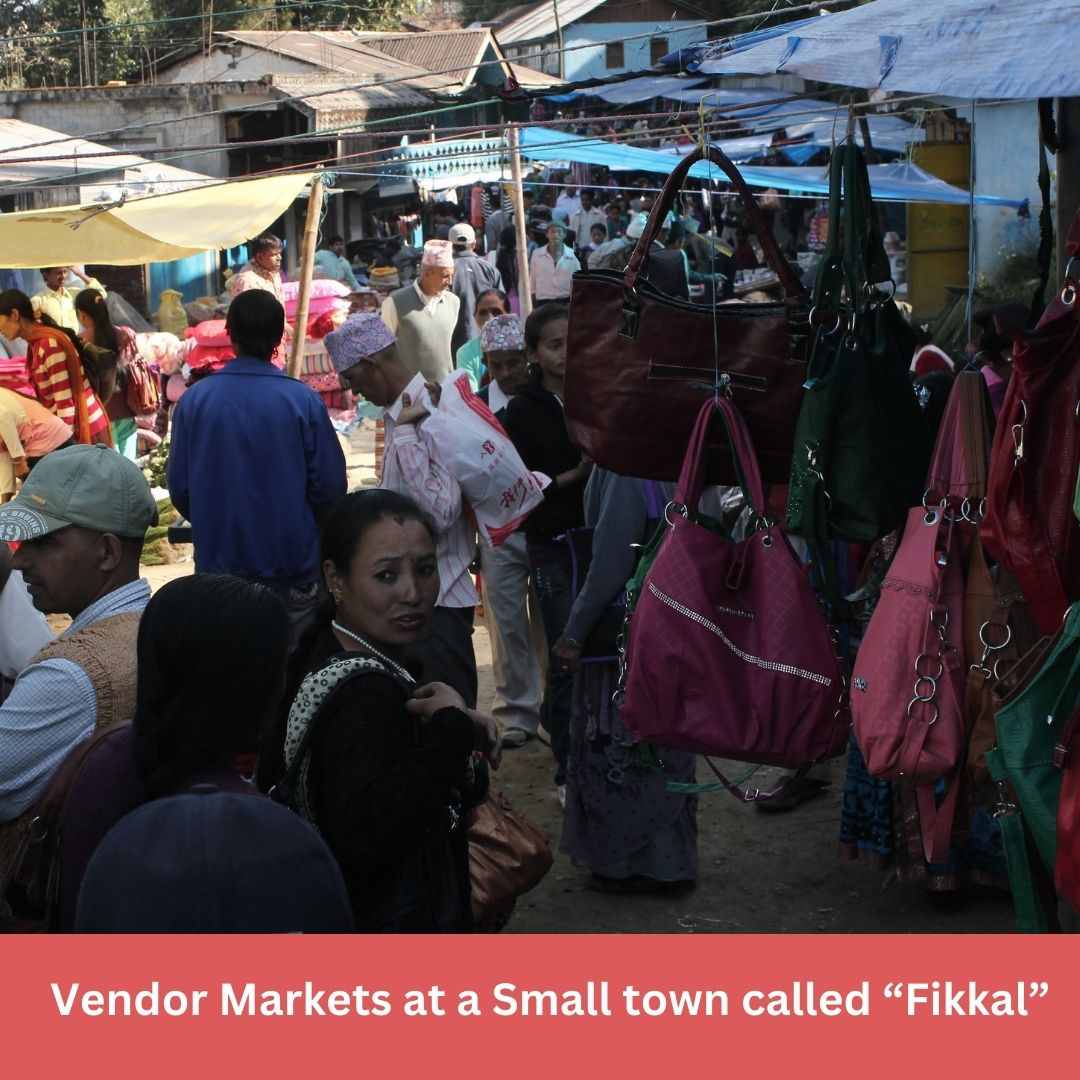As a child growing up in the picturesque village of eastern Nepal, my brother and I embarked on a daily 4.5-kilometer walk to school—a journey that took us around 60-70 minutes. The trek was not always easy, especially during the monsoon season when the creeks we crossed would swell with rainwater. On those days, we sought the company of grown-ups, hoping they would help us navigate the challenging crossings. Often, we waited for a kind soul to arrive and guide us safely across.

Every Thursday, our village of Fikkal transformed into a bustling open-air market. Traders and homegrown entrepreneurs gathered to sell everything from clothes to grains, fruits, and tools—a tradition that continues to this day, albeit with more modern commodities. Among the traders were women from the neighboring border areas of Darjeeling, whom we affectionately called Kaki or Badi (Nepali terms for "Aunt").
On some Thursdays, we found ourselves following these aunties on our way to school. They traveled over 10 kilometers from their Indian villages to our bazaar, likely starting their journey as early as 5:30 AM to reach the market by 8 AM. What intrigued me most about these women wasn't just their resilience but the captivating tea aroma that wafted from the cloth bags they carried on their backs.
At first, I had no idea what it was, but I was irresistibly drawn to the floral, soul-nurturing scent. It wasn’t until my mother explained that I learned the source of that aroma: loose leaf tea. These aunties likely worked as tea pickers in estate gardens, hand-rolling the tea leaves themselves before bringing them to the market to sell.

Back then, our community had only a small tea garden, with about 10-12 shrubs that my late grandmother had planted. After her passing, no one tended to the bushes, so they grew tall and wild. I would often pick the leaves and chew them raw, much like my grandmother did. My family noted that I shared her love for tea, which perhaps explains my lifelong passion.
By the time I turned 10, tea plantations had begun sprouting up in our village, and tea picking had become a common sight. When production was high, my mother started making hand-rolled teas. The moment the teas fermented, they released that same mesmerizing tea aroma I had first encountered in the aunties' cloth bags. Once dried in the sun, the orthodox loose leaf black tea emanated a particularly floral scent that captivated me deeply.

Today, thousands of miles away from my homeland, that aroma still transports me back to those hills. I now work closely with young artisans who craft small-batch teas, inspired by those early experiences. Orthodox Black Loose Leaf and White Loose Leaf teas remain my favorites. I prefer to drink them without milk or sugar, savoring the pure, rich flavors that are a testament to the unique terroir of Illam, Nepal—the land of flavorful artisanal teas.
The aroma of tea is more than just a scent; it's a bridge to memories, a connection to a rich heritage, and a testament to the enduring bond between culture and nature. Every sip of tea infused with that aroma is a journey back to the eastern hills of Nepal, a place where the art of tea-making is steeped in tradition and love.
What are your tea memories? Share With us.
Written By:
Bhaskar Dahal
Founder, Nepal Hills Tea Inc.




